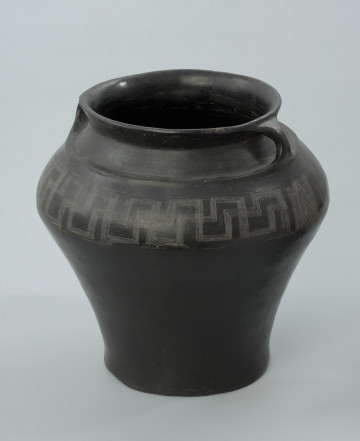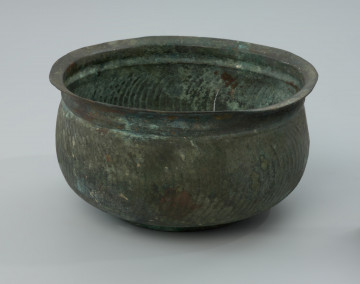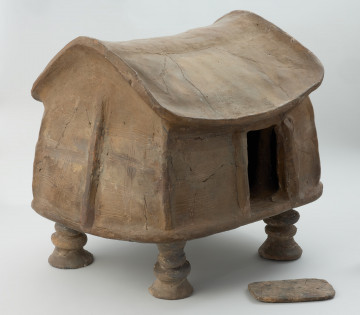
Decorated situla vessel
National Museum in Szczecin
Part of the collection: Antiquity
The iron double-edged sword was part of the furnishing of a cremation grave covered with the cremation pyre debris. Originally longer, it was deliberately shortened, and its hilt was then shaped to resemble shorter Roman gladius swords. This is a rare case of alteration of an older weapon. Apart from the sword, the grave also contained a bronze fibula with a characteristic rib, the so-called crest above the spring, an iron javelin arrowhead, a bronze belt buckle, a shield edge fitting, a bone pin and fragments of unspecified bronze objects. The item which allowed dating the entire burial to the 2nd/3rd centuries is the fibula. This is a very diverse category of ornamentations in terms of their construction.The fibulae are divided into a number of classes due to the shape of the individual elements – the bow, the spring and the foot. Sometimes the ornamentation is important, for example, the presence of a crest. The cemetery in Czelin was discovered by accident in 2004. For many years it has been investigated by archaeologists from the National Museum in Szczecin. So far, about 200 various objects have been discovered, mostly inhumation graves from the Roman period, dating back to the 1st - 3rd centuries and furnished with ornaments, elements of clothing and weapons. The presence of weapons in graves culturally distinguishes the Lower Oder region from the rest of Pomerania, where this form of ritual was not practised.
Bartłomiej Rogalski
Author / creator
Dimensions
cały obiekt: height: 4 cm, width: 56 cm
Object type
furnishings and equipment; weapon; sword; furnishings and equipment; weapon
Technique
metallurgical; forging
Material
iron
Creation / finding place
Owner
Muzeum Narodowe w Szczecinie
Identification number
Location / status

National Museum in Szczecin

around 150 — 375
National Museum in Szczecin

around 750 p.n.e. — 550 p.n.e.
National Museum in Szczecin
DISCOVER this TOPIC
National Museum in Lublin
DISCOVER this PATH
Educational path